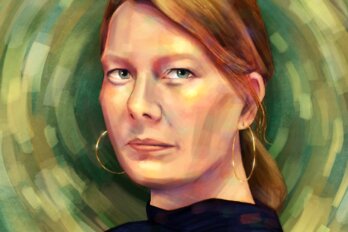We scoured countless catalogues for fall’s best new books, reading everything we could get our hands on, courtesy of publishers from coast to coast. If your reading appetites are as omnivorous as ours, you’ll enjoy this year’s roundup, which features something for all tastes—from short stories to multigenerational memoirs to poetry critiques. We hope you enjoy these new titles as much as we did.
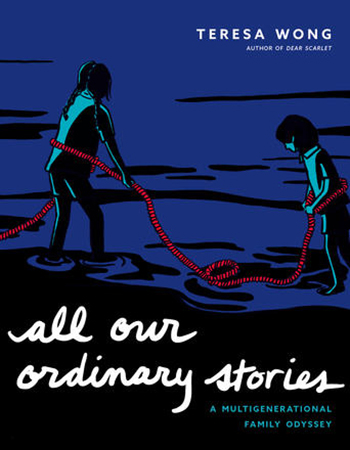
All Our Ordinary Stories: A Multigenerational Family Odyssey by Teresa Wong
Arsenal Pulp Press
Publication date: September 24
Teresa Wong’s parents fled Guangzhou, China, in the 1970s, each hiking and swimming to Hong Kong before winding up in Calgary to start life anew. But when Wong asks her parents for details, they say little: the experience, her mother tells her, is ordinary. In All Our Ordinary Stories, a graphic memoir, Wong explores what it means to translate one generation’s reality to the next. Her illustrations transcend language, conveying all manner of silences with stunning effect. “What you leave blank also matters,” Wong’s mother says while demonstrating how to paint with an ink stick. “What’s absent is just as important as what’s present.”
—Samia Madwar, senior editor
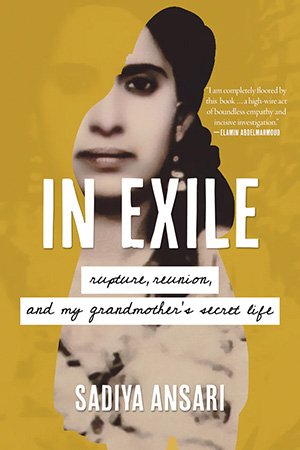
In Exile: Rupture, Reunion, and My Grandmother’s Secret Life by Sadiya Ansari
House of Anansi Press
Publication date: August 13
After the death of her first husband, Sadiya Ansari’s grandmother, Tahira, left her seven children in Karachi, Pakistan, to pursue a second marriage. A decade after Tahira died, Ansari, now a journalist, breached her familial code of propriety to ask why. The resulting investigation spans three continents, two dozen interviews, and extensive historical research. In Exile pursues a more fulsome understanding of Tahira’s life in Partition-era South Asia and the circumstances which shaped her decision. Who Ansari finds is neither a feminist hero nor a selfish villain, but a “fully formed human with needs and desires akin to (her) own.”
—Dhriti Gupta, Chawkers editorial fellow
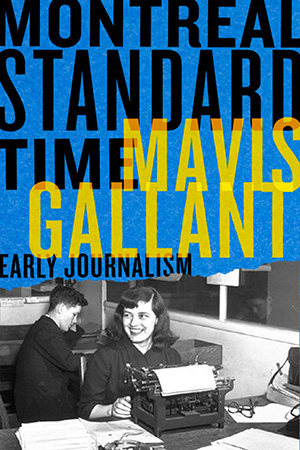
Montreal Standard Time: The Early Journalism of Mavis Gallant by Mavis Gallant, edited by Neil Besner, Marta Dvořák, and Bill Richardson
Véhicule Press
Publication date: October 24
I am new to the genius of Mavis Gallant. Out in October is a collection that remedied this by introducing me to her earliest journalistic work from the 1940s, when she was in her twenties. There are essays here you’d be forgiven for thinking were written yesterday—“Is Romance Killing Your Marriage?,” “Why Are We Canadians So Dull?” Pieces that are particularly prescient for anticipating debates that still roil this country: “Are They Canadians?” (on immigration), “Is Mercy Killing Murder?” (foreshadows medical assistance in dying), “Our Shameful Old People’s Homes” (state of elder care). There are fascinating snapshots of the postwar years—“Report on a Repat,” “Don’t Call Me War Bride.” And there’s the sampler of Gallant’s astonishing powers—“A Wonderful Country” (my absolute favourite, it left me in splits).
—Siddhesh Inamdar, copy editor
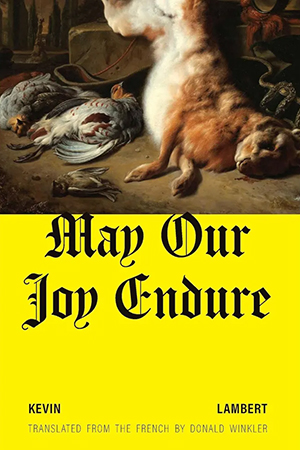
May Our Joy Endure by Kevin Lambert, translated by Donald Winkler
Biblioasis
Publication date: September 3
Who hasn’t wished a little divine retribution upon the ultrarich for all their sins? Kevin Lambert’s third novel, nimbly translated by Donald Winkler, is an icy, cerebral social novel that unfurls during the pandemic as the housing crisis in Montreal tips into catastrophe. Céline Wachowski, billionaire architect and “indisputably the best-known Québécoise in the world,” plunges from the heights of public adulation after partnering with an Amazon-like corporate behemoth to design their Montreal headquarters. Equal parts Proust, Woolf, and Gossip Girl, the novel’s intimate perspective roves between Céline and her employees, confidantes, and antagonists like a canny eavesdropper at a party, showcasing Lambert’s gimlet eye for the delusions and designer preferences of the 1 percent.
—Michelle Cyca, contributing writer
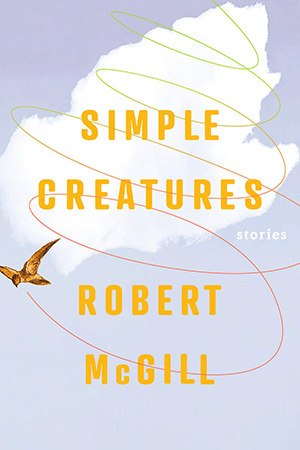
Simple Creatures by Robert McGill
Coach House Books
Publication date: October 8
It’s hard not to be charmed by the short stories in Simple Creatures, especially with cheeky titles like “Your ASMR Boyfriend Addresses the Climate Crisis.” Though some pieces are traditional in nature, others deploy left-field structures, like a YouTube narration or puppy training advice. For all the experimentation, humour, and nods to online life, at their core, McGill’s stories are grounded in human feeling—our yearnings, our anxieties, our obsessions, and our relationships with each other. Thanks to this deft balancing act, a story written as a high school report about Bigfoot ends up being weirdly, wonderfully moving.
—Monika Warzecha, digital editor
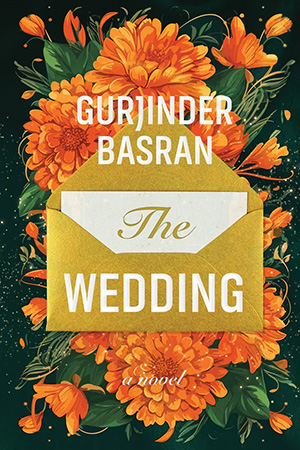
The Wedding by Gurjinder Basran
Douglas & McIntyre
Publication date: September 7
The Wedding feels like drinking a comforting cup of masala chai—not the pretentious “chai tea latte” but the real Indian stuff, with its nuanced notes of ginger and cardamom. Equal parts layered and entertaining, this breezy read takes you up close to one big tight-knit Sikh community in Surrey, BC. Chapter by chapter, it ropes you into a theatrical and complex family dynamic. Free of the clichés and cultural voyeurism that often plague South Asian diaspora tales, Gurjinder Basran’s fiction serves up the many flavours of the Indo-Canadian experience without dilution. You just have to RSVP to get a taste.
—Mihika Agarwal, Cannonbury editorial fellow
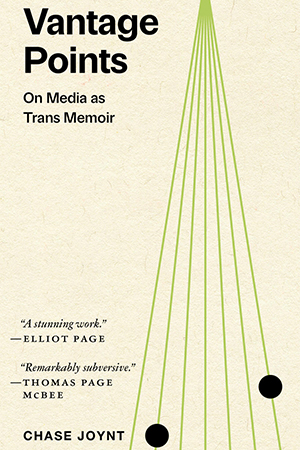
Vantage Points: On Media as Trans Memoir by Chase Joynt
Arsenal Pulp Press
Publication date: September 17
Chase Joynt’s latest book invites us to “think across gender and genre”—but unlike most of his previous works, he is the main subject here. It’s an effective experiment in form. Joynt uses a series of vignettes to reveal and dissect legacies of childhood sexual abuse, familial dynamics, and representations of masculinity. Each is presented in conversation with other media (scans, photographs, graphics, lists, a timeline, a script) and the work of philosopher Marshall McLuhan—who, Joynt discovers, has a connection to his family. As Joynt writes, it’s a framework to “make parts of life more readable . . . through new association and juxtaposition.” Rather than “avoidance and obfuscation,” the result is a moving exploration of how context colours interpretation—and how both affect the nature of truth.
—Ally Baker, head of research
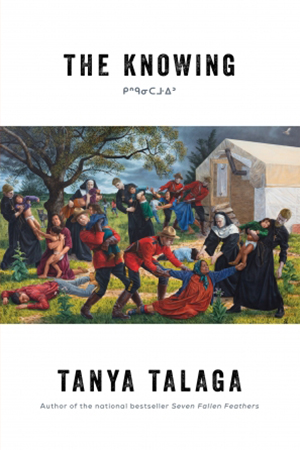
The Knowing by Tanya Talaga
HarperCollins
Publication date: August 27
The Knowing starts with an inheritance. After her uncle Hank dies in 2011, Tanya Talaga receives a brown folder filled with letters, death certificates, and baptism records. The documents are clues to a devastating mystery: What happened to Annie Carpenter? In the 1930s, Talaga’s great-great-grandmother was taken from her home in Lac Seul First Nation. Her family knew little else about what happened to her. In her third book, Talaga shares both the story of what happened to Annie and a necessary retelling of Canadian history.
—Carine Abouseif, features editor
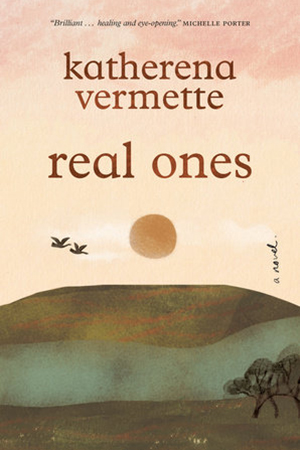
real ones by katherena vermette
Penguin Random House Canada
Publication date: September 3
All their lives, June and lyn have known their mother was a fraud. She’s always been a free-spirited, artsy type, content to test out new countries, new lifestyles, and new ethnicities, even if it meant leaving her two children motherless. In real ones, the grown sisters, who are Michif on their father’s side, are alerted that their mother, now a renowned multidisciplinary artist, is being investigated for false claims of Indigeneity. Through lithe prose that occasionally slips into poetry, vermette’s refreshing novel shines in its biting satire of white hubris and its conclusions about the slipperiness of identity.
—KC Hoard, associate editor
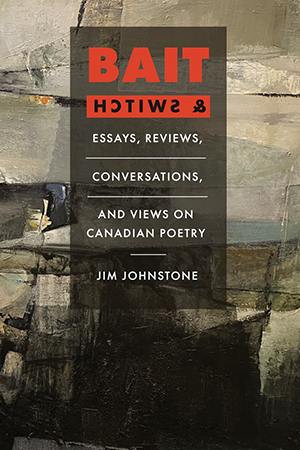
Bait & Switch by Jim Johnstone
The Porcupine’s Quill
Publication date: November 1
In 2010, Jim Johnstone was deep into reproductive physiology at the University of Toronto when he decided to chuck placental proteins for poems. Bait & Switch, his new book of essays and reviews, delves into his fascinating origin story, where he accounts for his dramatic career reset by calling poetry “an irresistible force.” Johnstone looks outward too, applying a laboratory rigour to the work of a wide spectrum of Canadian poets, including Karen Solie, Christian Bök, Souvankham Thammavongsa, Ian Williams, and, I’m sheepish to admit, me. His prose is the prose of someone used to precise ledgers: patiently forensic, unfailingly insightful. Each essay is a serum shot of clarity. If you want a primer on the state of our most underread national art, this is a good place to start.
—Carmine Starnino, editor-in-chief




